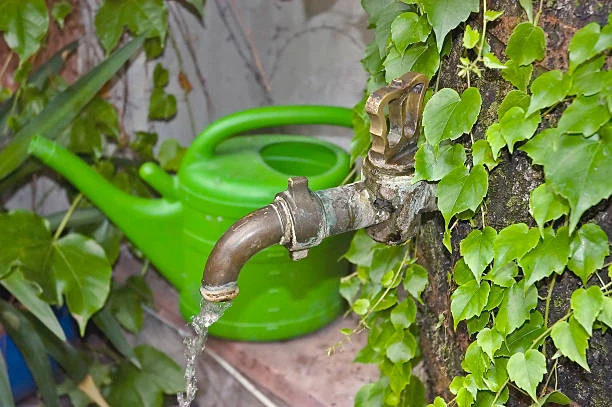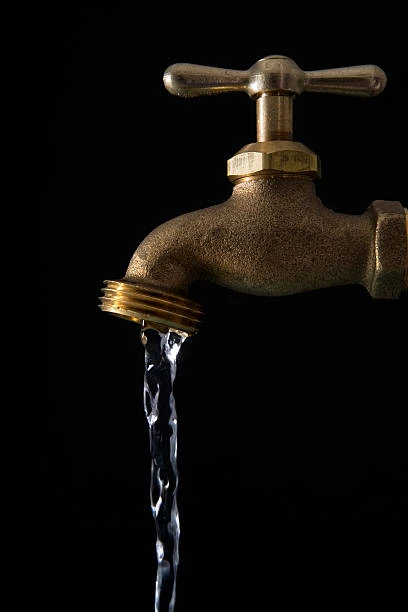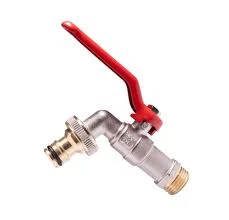Imagine turning on your outdoor faucet to water the garden or wash your car, only to be met with an unexpected and terrifying sight: a cobra flying out of the spout! While it may sound like a scene from a horror movie, this bizarre incident is exactly what happened to a family in a rural town. The snake, a venomous cobra, had somehow made its way into the plumbing system, hiding in a drain connected to the outdoor faucet. The incident has since become a sensation, leaving many wondering how such a frightening event could occur and what homeowners can do to prevent such surprises.
In this article, we’ll dive into the details of this unusual event, explore how snakes can end up in outdoor faucets, and provide some practical tips for homeowners to protect themselves from similar surprises.
How Did a Cobra End Up in an Outdoor Faucet?
The story of the cobra emerging from the outdoor faucet begins with a series of odd occurrences that led to this wild discovery. A family living in a rural area of Southeast Asia had been experiencing some strange behavior from their outdoor plumbing. At first, it was just a low water pressure issue, and then a slight hissing sound when they tried to turn on the faucet. Nothing too alarming — until the cobra emerged.
What likely happened is that the snake entered the drainage system through a series of small openings, such as cracks in the pipes or gaps around the plumbing. It’s not uncommon for snakes to seek shelter in dark, cool places, and drains offer the perfect environment for a snake to slither through. The cobra most likely made its way into the outdoor faucet’s drainpipe, and when the faucet was turned on, the sudden rush of water forced the snake to emerge in an unexpected and dramatic fashion.
How Snakes Get into Plumbing Systems
While cobras may not be the most common snakes to invade outdoor plumbing, other snake species have been known to enter drainage systems and plumbing pipes, especially in rural areas. So how do snakes manage to end up in places like your outdoor faucet?
1. Cracks in the Plumbing System
One of the most common ways snakes can infiltrate plumbing systems is through cracks or gaps in pipes, particularly in older plumbing systems. These cracks may develop over time due to wear and tear, or they might be the result of environmental factors like soil movement or flooding. If there are gaps or openings near the faucet, a curious snake might find its way in.
2. Openings in the Drainage System
Snakes are skilled at squeezing through narrow spaces, and a poorly sealed drain or vent system can give them an easy access point. Outdoor drains that are not properly covered or sealed can act as an invitation to wildlife, including snakes, who may seek refuge from the heat, predators, or to find food sources like small rodents.
3. The Lure of Cool, Dark Spaces
Plumbing pipes, particularly those underground or in hidden areas, tend to stay cool and damp, making them an attractive location for snakes looking to escape the sun’s heat. Snakes may enter drains or pipes in search of shelter, especially in warm climates.
4. Gaps Around the Faucet Installation
Faucets and plumbing fixtures that are improperly installed or maintained can have gaps between the faucet and the wall, or around the pipe fittings. These gaps can provide an easy entry point for snakes to crawl into the plumbing system.

Preventing Snakes from Getting into Your Outdoor Faucet
Now that we understand how snakes can get into plumbing systems, let’s explore some ways to prevent this from happening to your home. While it’s rare to encounter a cobra in your outdoor faucet. There are steps you can take to keep all wildlife, including snakes, out of your plumbing.
1. Seal Cracks and Gaps in Your Plumbing
One of the most effective ways to prevent snakes from entering your outdoor faucet is to ensure that there are no cracks or gaps in your plumbing system. Check for any signs of damage or wear on your pipes. And seal any openings around your faucet, including any small holes or gaps in the walls. If your plumbing is older, consider replacing pipes that may be deteriorating or cracked.
2. Install Snake-Proof Screens on Drains
To prevent snakes from entering your drainage system, install snake-proof screens on outdoor drains and vent openings. These screens can allow water to flow freely but will block snakes and other animals from gaining access. Regularly inspect these screens for any holes or damage, and replace them as needed.
3. Maintain Your Outdoor Faucet Area
Ensure that the area around your outdoor faucet is well-maintained and free from debris. Such as leaves, mulch, or tall grass, which could attract small rodents or snakes. Snakes are more likely to enter your plumbing system if they are already in the vicinity searching for food or shelter.
4. Install a Snake Barrier or Fencing
If you live in a rural or wooded area where snakes are more likely to be a problem. You might consider installing a snake barrier or fencing around your home or garden. This can help keep snakes at bay and prevent them from getting close to your plumbing system.
5. Check for Plumbing Leaks Regularly
Leaks in your plumbing system can attract not only snakes but also pests like insects and rodents. Regularly check your outdoor faucets, hoses, and pipes for leaks, and address any issues immediately. Proper maintenance will reduce the likelihood of attracting wildlife into your home.
6. Use Snake Repellents
In areas where snakes are common, using natural or commercial snake repellents around the foundation of your home, garden. And plumbing fixtures can discourage snakes from coming too close. These repellents are usually based on scents or chemicals that snakes find unpleasant, such as cinnamon or sulfur.
Why It’s Important to Address Snake Infestations Quickly
If you suspect that snakes are entering your plumbing system, it’s crucial to take action right away. A snake infestation, especially in the plumbing, can result in serious damage to your pipes. Snakes can burrow or chew through pipes, leading to leaks, blockages, and costly repairs.
Additionally, certain species of snakes can be dangerous, particularly venomous ones like cobras. Which can pose a threat to humans and pets. If you do find a snake in or around your outdoor faucet, it’s important to call a professional pest control or wildlife removal expert to safely handle the situation.
What to Do if You Find a Snake in Your Drain or Faucet
If you encounter a snake in your drain, faucet, or plumbing system, follow these steps to handle the situation:
- Stay Calm: Don’t panic. It’s important to assess the situation calmly and avoid any sudden movements.
- Turn Off the Water Supply: If possible, turn off the water supply to the affected faucet or plumbing system to prevent water from pushing the snake out into your home.
- Call a Professional: Contact a professional pest control service or wildlife removal expert. They have the tools and expertise to safely remove the snake from your plumbing without causing harm to you or the animal.
- Block Off Access Points: After the snake is removed, block off any potential entry points around your plumbing system to prevent future invasions.
Conclusion
The frightening incident of a cobra emerging from an outdoor faucet in a rural area serves as a reminder of the potential dangers that wildlife, including snakes, can pose when they gain access to plumbing systems. While this may be a rare occurrence, the reality is that snakes and other animals are constantly looking for shelter in cool, dark places, such as drains and pipes.
By taking preventive measures like sealing cracks in your plumbing, installing snake-proof screens, and maintaining your outdoor faucet area. You can minimize the chances of snakes invading your plumbing system. Regular inspections and prompt action are essential to ensuring your plumbing remains secure and wildlife-free.
Frequently Asked Questions (FAQs)
Can snakes really get into plumbing systems?
Yes, snakes can enter plumbing systems through cracks in pipes, gaps around faucets, or poorly sealed drains. Once inside, they may seek shelter or escape from predators.
How do I know if a snake is in my outdoor faucet?
Signs that a snake may be in your outdoor faucet include strange noises when you turn on the water. Low water pressure, or water coming out in an unusual pattern. If you spot a snake, call a professional immediately.
Are there any repellents that can keep snakes away?
Yes, there are natural and commercial snake repellents that use scents or chemicals snakes find unpleasant, such as cinnamon or sulfur. These can be applied around plumbing fixtures or the foundation of your home.
Can I remove a snake from my plumbing system myself?
It’s generally not recommended to remove a snake from your plumbing system on your own. Contact a professional wildlife removal service to handle the situation safely.
What are the risks of a snake in my outdoor faucet?
The risks include potential water damage, pipe blockages, and, in the case of venomous snakes, a threat to your safety and that of your pets. Prompt action is needed to address any snake issues in your plumbing.


















